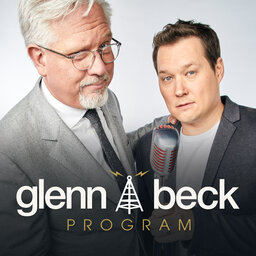Serial: War On Poverty - The Great Society
War on Poverty
Watch The Glenn Beck Radio Program, Monday through Friday, 9am - 12pm ET on BlazeTV. www.BlazeTV.com/GlennIn 1965, Lyndon B. Johnson declared “unconditional war on poverty in America,” launching The Great Society that altered social programs of The New Deal. According to Johnson, The Great Society asked “not how much, but how good.”
Perhaps “how much” was the greater question because the answer was $22 trillion — and counting. The Cato Institute estimates an additional $48 trillion in unfunded liabilities from Medicare alone.
Today, Medicare, Medicaid and FDR’s Social Security program account for 47 percent of all federal spending. That’s almost $1.8 trillion annually. And the total amount of America’s unfunded liabilities are said to be in excess of $125 trillion — more than twice the amount of all money in the world today.
Was it worth it? LBJ said “not how much, but how good.” So how good was it? Sadly, the poverty rate is higher today than in 1965.
LBJ proposed many initiatives to launch his War on Poverty:
- An educational program to ensure every American child had the fullest development
- A massive attack on crippling and killing diseases
- A national effort to make the American city a better and a more stimulating place to live
- Increase the beauty of America and end the poisoning of rivers and air
- A new program to develop regions of the country suffering from distress and depression
- New efforts to control and prevent crime and delinquency
- Elimination of every remaining obstacle to the right and the opportunity to vote • Honor and support the achievements of thought and the creations of art
- An all-out campaign against waste and inefficiency
According to one source, his vision was to help the disadvantaged help themselves, hoping that an education equaled opportunity, and the chance to come into the mainstream of American middle class economic life.
However, even in his own party, some were not convinced that his efforts were effective, including Senator Robert F. Kennedy who said, “If we learned anything in the last summer and over — in the last 30 years, what we’ve been doing hasn’t been the answer. It’s been helpful. But what we’ve been doing has not been the answer. And we can’t just be doing the same thing that we’ve been doing for the last three decades and hope that eventually all these problems are going to disappear.”
Regardless, LBJ kept pumping out the programs, preparing bill after bill, funds for education — elementary, secondary, college and Head Start for preschool children — funds for conservation, clean air, clean rivers, highway beautification, national parks, consumer protection, truth in labeling and packaging, automobile safety, urban renewal and housing, public television, creation of the National Endowment for the Humanities and the Arts — the list goes on and on.
Part of the LBJ War on Poverty initiative included bringing about social and racial justice — equal rights for blacks. His efforts helped create the impression that Democrats were the ones fighting for minorities and Republicans were the racist corporation cronies. This, despite the fact that Republicans had freed slaves and fought along with black Americans for civil rights. LBJ, on the other hand, had fought against civil rights the first 20 years of his political career, including opposing President Harry S. Truman’s proposals against lynching and segregation and interstate transportation. Johnson called the proposed civil rights program a farce and a sham.
No one knows what was in Lyndon Johnson’s heart at the time, but being as he was incredibly opportunistic and ambitious as the nation began to demand civil rights for blacks, his position changed. Democrats have reaped the benefit of that change ever since.
By the early ’90s, studies were showing that rather than eradicating poverty, The Great Society was eradicating families — and that trend has worsened ever since.
In 3 playlist(s)
Glenn Beck
Watch The Glenn Beck Radio Program, Monday through Friday, 9am - 12pm ET on BlazeTV. www.BlazeTV.com…Social links
Recent clips

Best of the Program | Guests: Rep Thomas Massie, Rep. Chris Stewart & Ezra Levant | 2/5/20
1:00:45

Trump Redefined the SOTU | Guests: Reps. Thomas Massie & Chris Stewart | 2/5/20
2:08:26

The Glenn Beck Program | Hour 3 | 2/5/20
32:23
 Glenn Beck
Glenn Beck

